Episode 1
Exploring Ocean Acidification and the Connection Between Acidification, Ocean Warming, and Harmful Algal Blooms
Marine scientists engaged in ocean acidification research and monitoring harmful algal blooms talk about what they are studying in Alaska.
Photo by UAF. The GAKOA buoy has been taking measurements to track ocean acidification in Resurrection Bay near Seward since 2011.
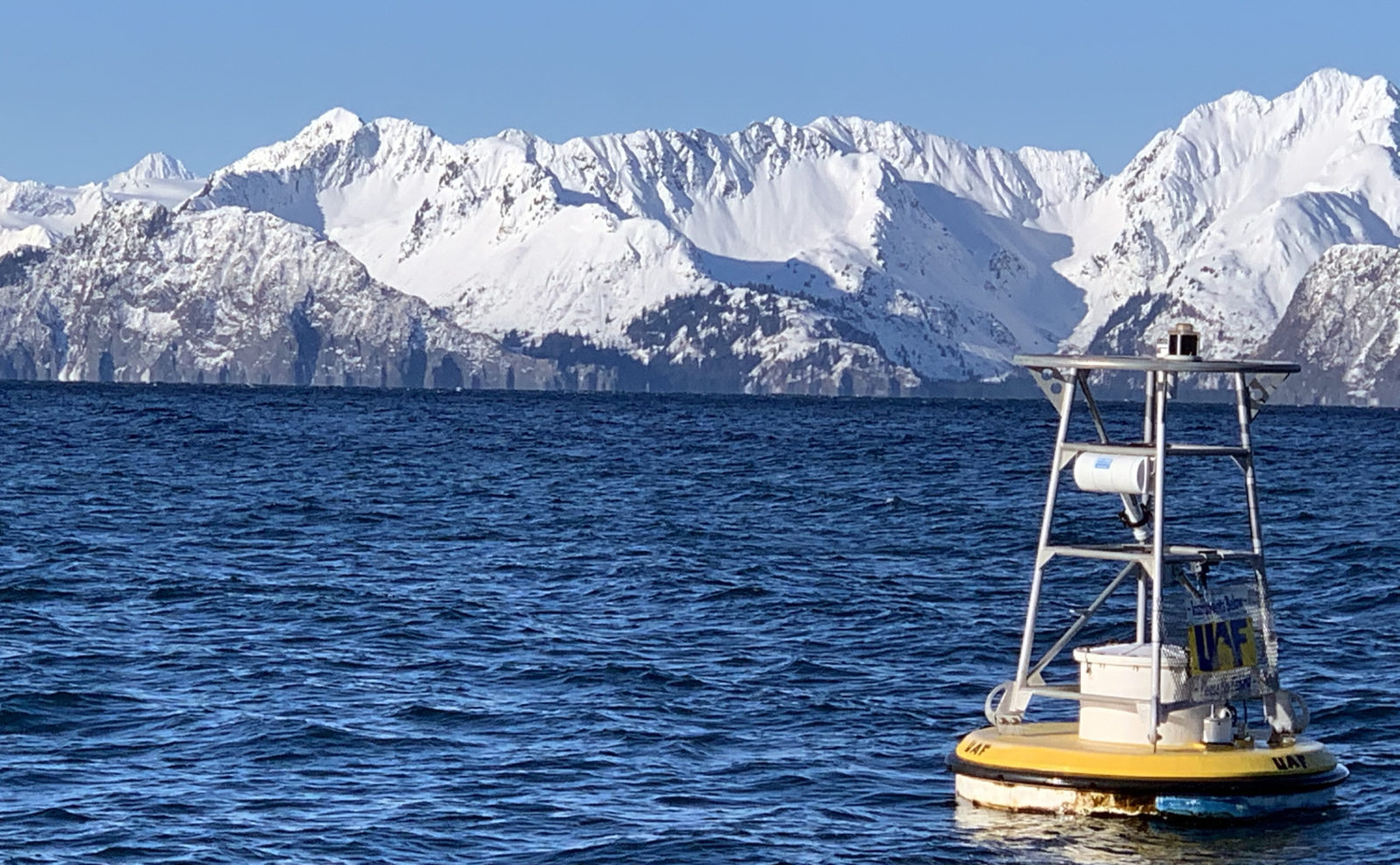
Listen On Spotify
Listen On Apple Podcasts
Experts Interviewed
Dr. Jessica Cross, NOAA/Pacific Marine Environmental Lab
Jessica Cross is a research oceanographer focused on carbon biogeochemistry and ocean acidification along Alaska’s coast. In her research she aims to better understand how acidification processes interact with natural biogeochemical cycles, and eventually to detect geochemical and biological impacts of acidification in marine systems. She conducts research using ship-based measurements, moorings, and mobile autonomous platforms like gliders and drones. Cross also participates in the arctic research community through the North American Carbon Program, the Ocean Carbon Biogeochemistry Program, the Pacific Arctic Group, and the Interagency Research Policy Committee collaboration teams. She holds a PhD in Chemical Oceanography from the University of Alaska Fairbanks.
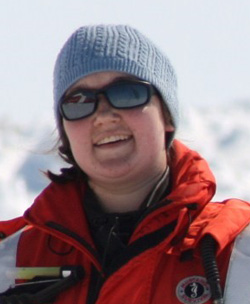
Kris Holderied, NOAA National Centers for Coastal Science/Kasitsna Bay Lab
Kris Holderied is a physical oceanographer and Director of the Kasitsna Bay Lab in Kachemak Bay. She oversees research and facility operations at the lab, conducts research on coastal ecosystem change, and supports marine science education. Her coastal research interests are focused on how changing ocean conditions affect Alaska’s coastal resources and communities. Holderied received a Master of Science in Physical Oceanography from the Massachusetts Institute of Technology/Woods Hole Oceanographic Institution Joint Program.
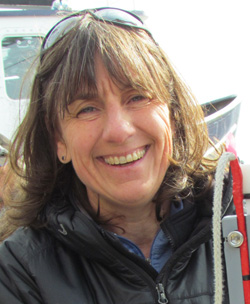
Jamie Goen, Alaska Bering Sea Crabbers
Jamie Goen is Executive Director for Alaska Bering Sea Crabbers. She started her career on oceanography vessels testing carbonate systems in seawater around the globe. After developing a strong interest in the role of fishermen in sustainable resource management, she worked for NOAA Fisheries with a focus on limited entry and quota programs and a stint as Congressional Affairs Liaison to the head of NOAA Fisheries. She also worked for the International Pacific Halibut Commission overseeing data collection from fisheries and fisheries-independent surveys before joining the crabbers. Goen holds a Masters of Marine Policy from the University of Washington.
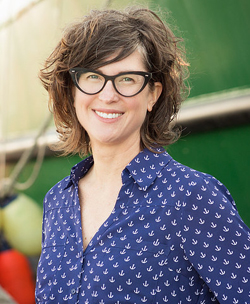
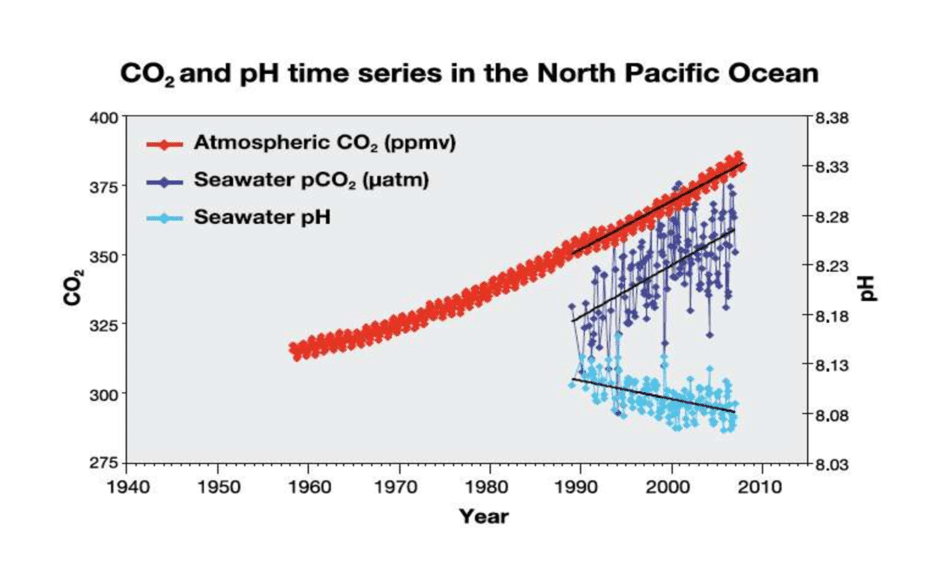
Time series of atmospheric CO2 at Mauna Loa. As CO2 in the atmosphere increases, the pH of ocean water goes down meaning that it becomes more acidic. Credit: NOAA/ESRL; HOTS/Aloha
- Visit the Alaska Ocean Acidification Network to find more information about ocean acidification in Alaska, including the range of monitoring efforts from innovative technologies to community-based programs carried out by citizens.
- Visit the Alaska Harmful Algal Bloom Network to find more Alaska-specific information about HABs, the science, the impacts, and monitoring efforts.
- See What is Ocean Acidification? by NOAA’s Pacific Marine Environmental Lab. Also visit the NOAA Ocean Acidification Program, which coordinates research and monitoring to improve our understanding of how (and how fast) the chemistry of the ocean is changing, how variable that change is by region, and what impacts these changes are having on marine life, people, and local, regional, and national economies.
- See this article in the journal Arctic Today about effects of multiple stressors on the ecosystem – “Researchers are finding more signs of dangerous toxins from algae in Alaska wildlife”
- Check out Drawdown by Paul Hawken, a compelling read (book and website) for a broad audience and good for anyone curious about technologies and practices that reduce carbon emissions.
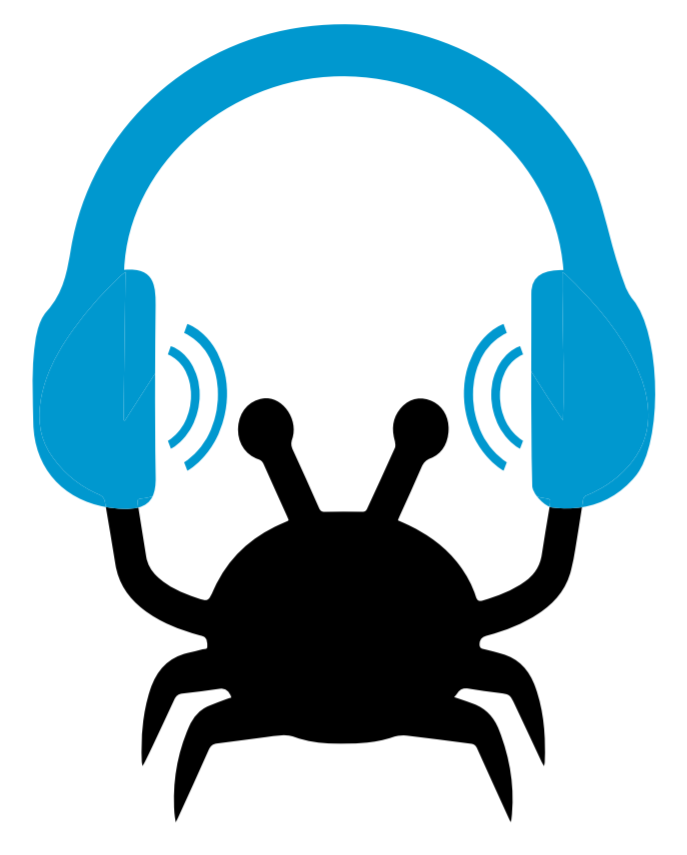
For more information
Contact Darcy Dugan, dugan@aoos.org

